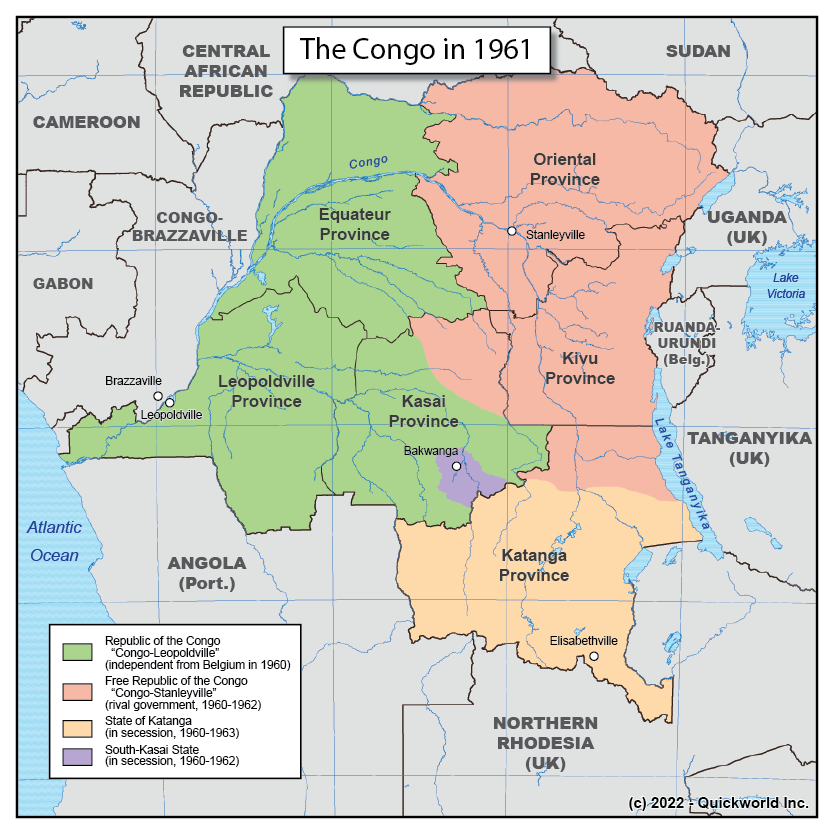The period that followed the independence of Congo from Belgium, in 1960, was deeply troubled. While the Belgians believed that they could establish a regime that would remain friendly to its massive investments in the local mining industry, the long-lasting resentment felt by the Congolese population toward the colonial power led to the formation of a government headed by Patrice Lumumba and hostile to Belgian interests. This quickly descended into turmoil, with Katanga declaring secession, followed by Kasai, and the establishment of rival governments. In typical Cold War fashion, the USA and the USSR got indirectly involved by supporting the various factions in power. A coup was orchestrated by Joseph Mobutu in December 1960, and Patrice Lumumba was assassinated. Stability was only restored by 1963 with the end of the separatist regimes, but this was accomplished at the expense of democracy.
Deep tensions between regional and ideological factions have remained present throughout modern Congolese history, often resulting in tragic warfare.
More on Congo
The Katanga Secession


